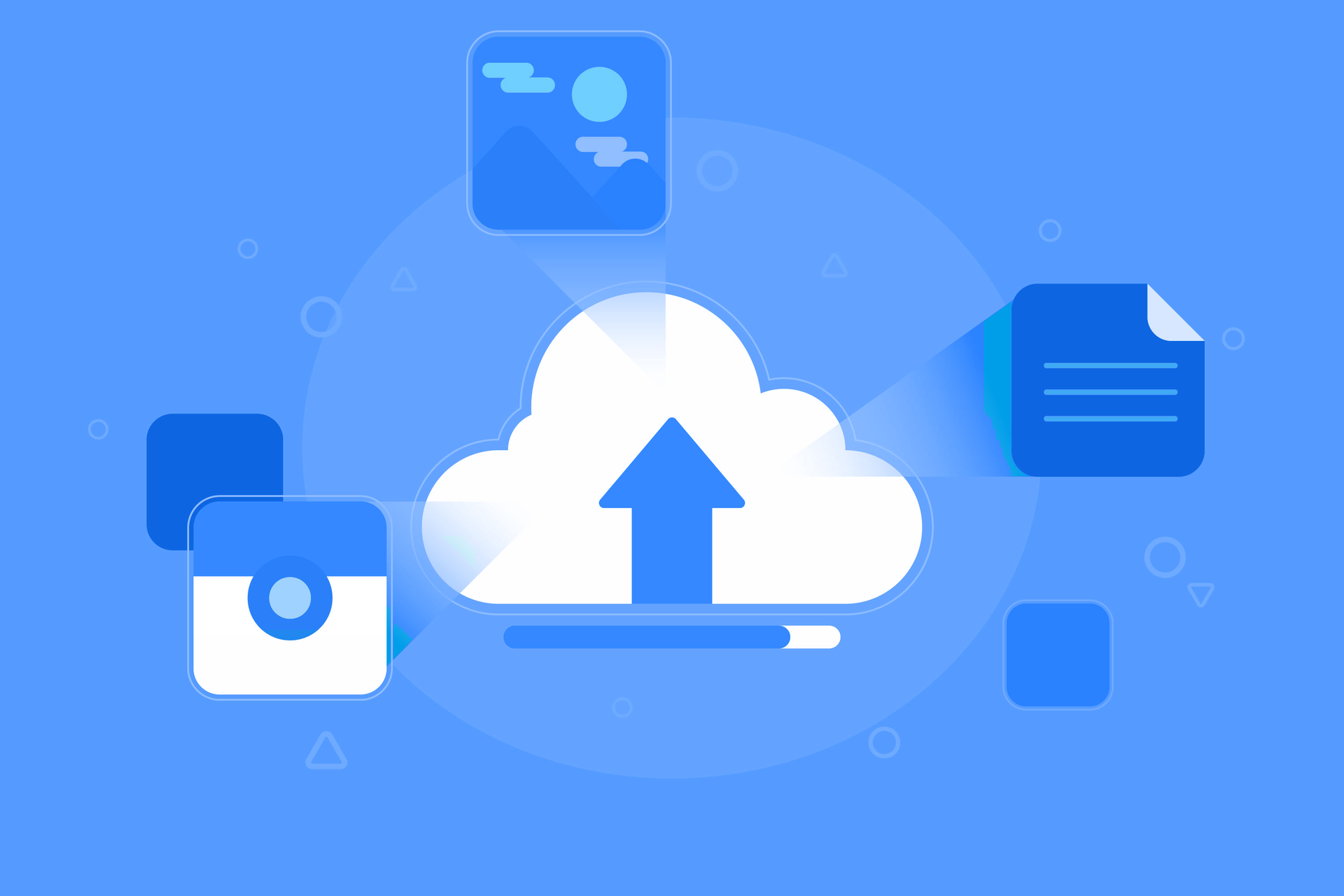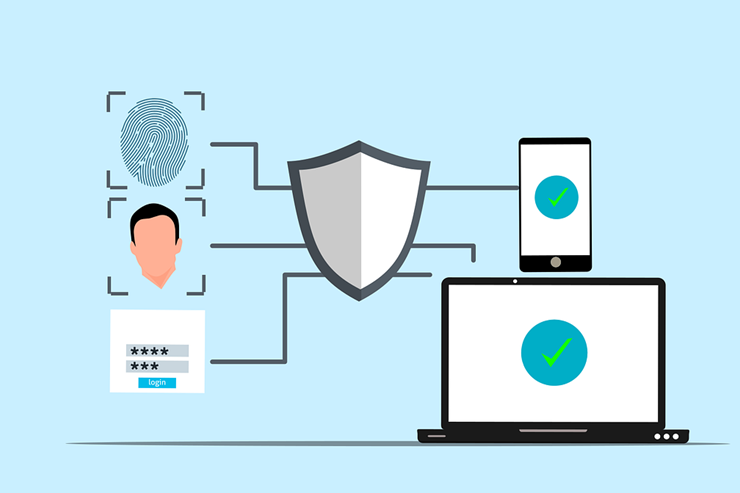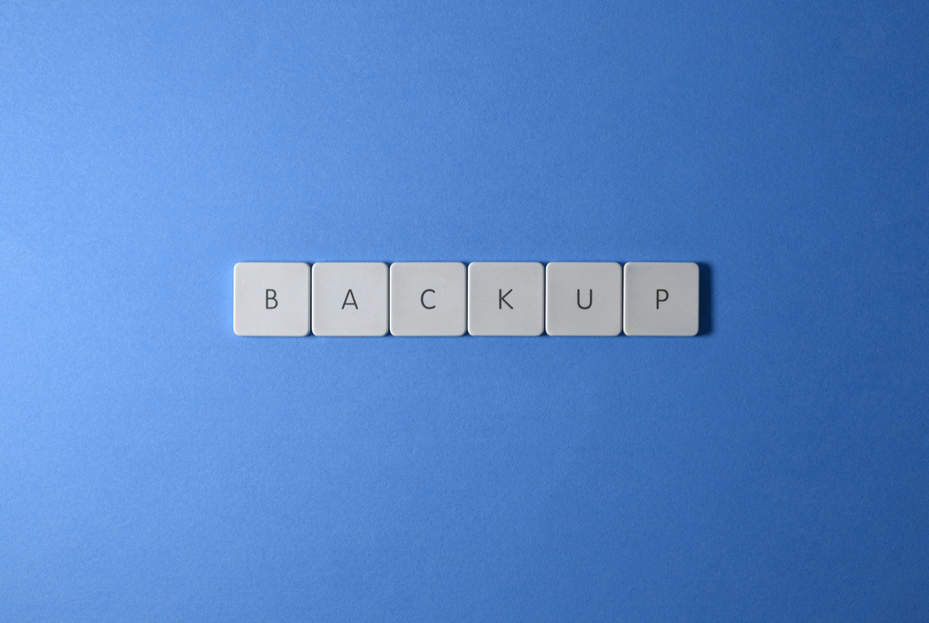4 Data backup solutions to consider
September 5, 2019

The modern business uses data in almost every aspect of its operations. Without immediate and constant access to it, a business will come to a grinding halt. What’s more, in the event of a disaster, it risks losing valuable data if it doesn’t have a backup strategy in place. Here are four data backup solutions you can implement to prevent such a scenario.
When it comes to data backups, there’s no one-size-fits-all solution. As such, you’ll want to consider the pros and cons of each before making a choice.
USB flash drives
USB flash drives are basically miniature hard drives that you connect to your computer using a USB port. Aside from being inexpensive, USB flash drives are also portable. They can be used to back up data from several computers.
However, because of their size and portability, USB flash drives are easy to misplace, which is why they’re not recommended for long-term storage of crucial information. They are best used for intermediate backups.
External hard drives
As a backup storage medium, external hard drives have the lowest cost per gigabyte compared to other backup devices. Since an external hard drive has the same plug-and-play functionality as USB flash drives, you can just plug it into your computer and start selecting the files you want to back up. The transfer rate is also very fast, and you can back up a large amount of data within seconds.
One of the drawbacks of using an external hard drive is that you’ll need to update your backups on a regular basis, or else new files won’t be included. There’s also the risk of the device being misused or stolen. For example, an employee might use the drive for storing personal files or take it with them when they quit.
Network attached storage (NAS)
NAS is a dedicated server for storing data, and it can also be used as an email server. It has its own IP address and can operate either wired or wirelessly. NAS offers data redundancy, which means it will generate a backup of your backups, so you can ensure your files are fully protected.
On the downside, NAS can’t be scaled beyond the limits of the system. This means you have to purchase additional hard drive bays when you need more capacity. You also have to take full responsibility for data security if you’re implementing NAS.
Cloud storage
Cloud storage is becoming more and more popular among businesses of all sizes because of its many benefits. It gives users anytime, anywhere access to data and lets them work with the most current hardware and up-to-date software. It’s also affordable since businesses pay for what they use only. Additionally, cloud computing is convenient, because service providers take care of the installation, management, and maintenance processes.
However, some cloud service providers don’t employ sufficient security measures on their systems, so your data could be exposed to potential cybersecurity threats. For this reason, cloud storage is not always the ideal solution for medical practices, law firms, and other organizations that handle sensitive data. If they want to use cloud storage, they must find a service provider that implements top-of-the-line cybersecurity protocols and specializes in data regulations compliance.
Choosing the best backup solution has far-reaching impacts on your business. Each method or device has trade-offs, which is why you need to select the one best suited to your business’s needs. Enlist the help of our experts to ensure you make the right choice.
Published with permission from TechAdvisory.org. Source.

A slow computer or a frozen screen are the worst things that can ruin your day. You've most likely dealt with outdated technology on multiple occasions if you manage a small business. It may seem cost-effective to extend the life of outdated equipment, but the long-term costs are frequently higher. Due to technological issues like sluggish PCs and antiquated laptops, small businesses lose about 98 hours annually, or 12 working days . This is why it's important to have an IT refresh plan. It helps you stay safe, prevents unplanned malfunctions, and keeps your team operating efficiently. Regardless of whether you outsource managed IT services or handle them in-house, a solid refresh strategy can save time, stress, and money down the line.

Does your small business ever feel like it has too much data? This is a fairly typical occurrence. The way small businesses function has changed as a result of the digital world. In addition to customer emails and backups, we now have an overwhelming amount of data to manage, including financial statements, contracts, logs, and employee records. According to a PR Newswire survey, 72% of company executives say they have stopped making decisions because the information is too overwhelming. All of this data can easily become disorganized if improperly handled. By implementing the appropriate data retention policy, effective IT solutions assist. A strong data retention policy keeps your company compliant, organized, and cost-effective. Here's what should be deleted, what should be kept, and why.

Selecting the best cloud storage solution can be similar to being faced with an endless buffet of options, each one claiming to be the best. A poor choice may result in lost revenue, compromised data, or even a snag in productivity. The stakes are extremely high for small business owners. Regardless of your level of experience, we will guide you through this thorough guide to help you choose a cloud storage solution that is specific to your company's needs.

Cyber threats are a daily reality for small businesses navigating an increasingly digital world; they are not merely an abstract concern. Financial and reputational harm can result from ransomware attacks, phishing scams, or unintentional data leaks. In order to reduce the risks, more businesses are using cyber insurance. Not every cyber insurance plan is made equally. Many business owners think their policy covers them, but they discover (too late) that it has significant gaps. We'll explain exactly what is and isn't covered in this blog post, along with how to pick the best cyber insurance plan for your company.

Have you ever questioned how susceptible your company is to online attacks? Nearly 43% of cyberattacks target small businesses , frequently taking advantage of lax security measures, according to recent reports. Multi-Factor Authentication (MFA) is one of the most underutilized yet powerful ways to safeguard your business. Even with your password, hackers will find it much more difficult to obtain access thanks to this additional security measure. The implementation of Multi-Factor Authentication for your small business is explained in this article. Knowing this will enable you to take an important step toward protecting your data and guaranteeing more robust defense against possible cyberattacks.

Managing a small business requires a lot of multitasking. These hats include operations management, customer service, and maintaining order. AI-powered automation is a solution that can reduce the workload. Small business owners can now automate tasks that were previously done by hand thanks to technological advancements that have made these tools more affordable and accessible than before. There's no need to hire a big staff or spend a fortune. AI can manage a large portion of your hectic workload, allowing you to concentrate on more crucial facets of your company. AI can act as your virtual assistant, increasing productivity and simplifying processes, whether you're a small team manager or a solopreneur. This blog post explores how you can automate everyday tasks and free up your time if you want to learn more about how AI can change your company. We'll demonstrate how to use reasonably priced AI tools to reduce repetitive tasks, save time, and increase business efficiency.

In today's digital world, cyber threats are smarter than ever. Weak passwords or old ways of proving who you are can cost people and businesses money, steal their data, or steal their identities. A strong password is the first thing that will keep hackers out, but it's not the only thing that will work. This guide goes over the basics of strong passwords, two-factor authentication, and the best ways to keep your accounts safe. We'll also talk about new ways to check things and things you should never do.

A sophisticated type of cyberattack known as "password spraying" uses weak passwords to acquire unauthorized access to numerous user accounts. This approach focuses on using a single password or a collection of passwords that are frequently used across multiple accounts. The goal is to circumvent standard security protocols, such as account lockouts. Password-heavy attacks are highly effective because they target people and their password management practices, which are the biggest weakness in cybersecurity. This ar ticle will describe how password spraying operates, address how it differs from other brute-force attacks, and go over how to detect and prevent it. We will also discuss how businesses can defend themselves against these threats and examine real-world examples.

What would happen if tomorrow your company lost all its data? Would your operations come to a complete stop, or would you be able to recover? Data, including communications, financial records, product files, and customer information—is the lifeblood of any small business. However, data security is frequently neglected. After a disaster, 25% of small businesses close within a year, and 40% never reopen , according to the Federal Emergency Management Agency (FEMA). That represents an incredible 65% failure rate because of inadequate preparation. The good news is here. An enterprise budget and a dedicated IT staff are not necessary for disaster data protection. You can create a backup and recovery plan that reduces downtime and provides you with peace of mind if you have the right approach, the appropriate tools, and a little forethought. In this blog post, we will discuss practical and easy-to-follow advice to help you protect your most valuable business asset: your data.

